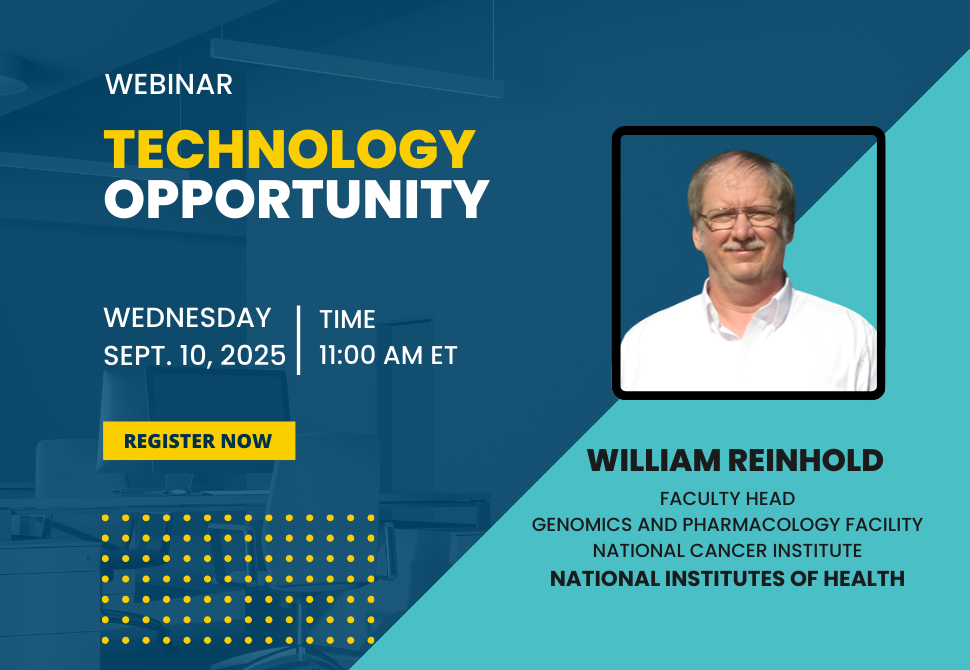Webinar: A Drug Repurposing Approach for Clinical Treatment of Triple-Negative Breast Cancer

September 10, 2025 | 11:00 AM – 12:00 PM
If you are interested in obtaining a recording of the webinar, please reach out to joseph.conrad@nih.gov.
On September 10, 2025, NCI TTC hosted a free NIH technology webinar highlighting a novel, potential treatment for Triple-Negative Breast Cancer (TNBC). William Reinhold and his team at the NCI repurposed two separate therapeutic compounds ─ acetalax and bisacodyl (both previously used as laxatives) ─ into novel treatments for TNBC. Attend to learn more about this technology and opportunities to help develop and commercialize it.
About the Technology
The Problem:
TNBC is a highly invasive and hard to treat cancer. Responses to current treatment methods are usually short lived, followed by rapid relapse leading to visceral and brain metastasis. There is also no standard chemotherapy regimen for patients with relapsed/refractory TNBC. Therefore, there is a significant unmet need for new and effective treatment options to treat patients with TNBC.
How the Solution Works:
- Acetalax and bisacodyl show promising results in killing TNBC cells in patient-derived xenografts (PDX) cell lines and mouse models.
- Acetalax and bisacodyl disrupt the activity of the protein transient receptor potential melastatin member 4 (TRPM4), which is over expressed in TNBC and several other cancers.
- Disruption of TRMP4 activity negatively affects its ability to regulate cancer cell migration, cytoskeleton maintenance and epithelial-mesenchymal transition (EMT).
- Acetalax and bisacodyl's affect on TRMP4 disrupts the cancer cell membrane, causing oncosis (i.e., swelling and rupture), which kills cancer cells).
Competitive Advantages
- Repurposed drugs provide:
- reduced development costs
- reduced development timelines
- Bisacodyl may be eligible for expedited FDA approval based on current approval for different indication
- Novel, potential TNBC treatment option compared to the current challenging to treat standard of care
Who should attend?
- Business development professionals
- Scientific and drug development professionals
- Biotech/pharma/academia researchers
- Investors and entrepreneurs
Why attend?
- Assess co-developing the technology
- Interact with the inventor, ask questions and provide feedback
- Learn how to partner with the NIH facilitated by the NCI Technology Transfer Center
If you are interested in learning more about how to co-develop and/or license this technology, please contact Michael.Salgaller@nih.gov.